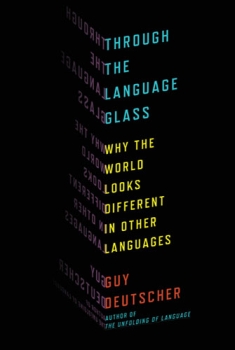- HOME
- INTRO TO THE FORUM
- USE AND MISUSE
- BADLY WRITTEN, BADLY SPOKEN
- GETTING
TO KNOW ENGLISH - PREPARING FOR ENGLISH PROFICIENCY TESTS
- GOING DEEPER INTO ENGLISH
- YOU ASKED ME THIS QUESTION
- EDUCATION AND TEACHING FORUM
- ADVICE AND DISSENT
- MY MEDIA ENGLISH WATCH
- STUDENTS' SOUNDING BOARD
- LANGUAGE HUMOR AT ITS FINEST
- THE LOUNGE
- NOTABLE WORKS BY OUR VERY OWN
- ESSAYS BY JOSE CARILLO
- The Need To Avoid Officious Stock Phrases When Writing Or Speaking
- Sounding Profound By Quoting Someone Without Attribution
- Why We Need to Hyphenate Certain Compound Modifiers
- Let’s Come To Grips With The Proper Use Of“However”Once And For All
- How English Makes Do To Evoke The Sense Of The Past Imperfect
- When It Greatly Matters What English Accent We've Acquired
- ABOUT JOSE CARILLO
- READINGS ABOUT LANGUAGE
- TIME OUT FROM ENGLISH GRAMMAR
- NEWS AND COMMENTARY
- BOOKSHOP
- ARCHIVES
READINGS IN LANGUAGE
This new section features links to interesting, instructive, or thought-provoking readings about the English language. The selections could be anywhere from light and humorous to serious and scholarly, and they range widely from the reading, writing, listening, and speaking disciplines to the teaching and learning of English.
One’s mother tongue doesn’t prevent thinking certain thoughts
Some 70 years ago, Benjamin Lee Whorf, a chemical engineer moonlighting as an anthropology lecturer at Yale University, came up with the seductive idea that a people’s mother tongue restricts what they are able to think. In “Science and Linguistics,” a short article published in the popular science magazine Technology Review of the Massachusetts Institute of Technology, Whorf claimed in particular that Native American languages impose on their speakers a picture of a totally different reality, so their speakers simply wouldn’t be able to understand some of the most basic concepts of native English speakers. This idea captivated both academics and the general public alike until it fell into disrepute in recent years when it was discovered that Whorf had no evidence at all to support his ambitious theory.

In Through the Language Glass: Why the World Looks Different in Other Languages, a new book soon to be published (Metropolitan Books, 320 pages), linguistics and culture research fellow Guy Deutscher revisits Whorf’s failed theory about language and its many serious wrong assumptions. “The most serious one was to assume that our mother tongue constrains our minds and prevents us from being able to think certain thoughts,” he says. “The general structure of his arguments was to claim that if a language has no word for a certain concept, then its speakers would not be able to understand this concept. If a language has no future tense, for instance, its speakers would simply not be able to grasp our notion of future time.”
But Deutscher argues that even if one’s mother tongue isn’t really a “prison house” that constrains one’s capacity to reason, it’s a mistake to think that this proves that people of all cultures think in fundamentally the same way. He explains: “The habits of mind that our culture has instilled in us from infancy shape our orientation to the world and our emotional responses to the objects we encounter, and their consequences probably go far beyond what has been experimentally demonstrated so far; they may also have a marked impact on our beliefs, values and ideologies. We may not know as yet how to measure these consequences directly or how to assess their contribution to cultural or political misunderstandings. But as a first step toward understanding one another, we can do better than pretending we all think the same.”
Read Guy Deutscher’s “Does Your Language Shape How You Think?” in The New York Times now!
ABOUT THE AUTHOR:
Guy Deutscher is an honorary research fellow at the School of Languages, Linguistics and Cultures at the University of Manchester. This article is adapted from his new book, Through the Language Glass: Why the World Looks Different in Other Languages, to be published this month by Metropolitan Books.
RELATED READING:
In his book Mother Tongue: The Story of the English Language (Harper Reprint, 224 pages), Bill Bryson traces the history of English from its mongrel origins to its current status as the world’s most-spoken language.

Read product details of Bill Bryson’s Mother Tongue on the Amazon.uk website now!
Click to read comments or post a comment
View the complete list of postings in this section
(requires registration to post)






